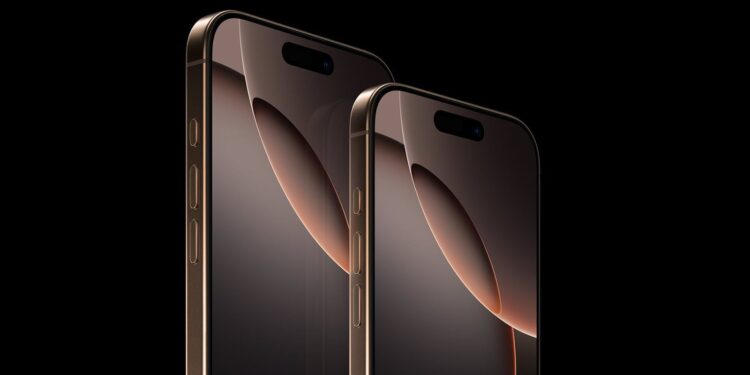The iPhone 16 Pro is equipped with the new A18 Pro chip, which shows quite a bit of performance in the first benchmarks. The comparison with the Apple M1 chip, which has been used in Macs and iPads so far, is particularly interesting. Here you can find out how the A18 Pro in the iPhone 16 Pro compares to older models and the M1.
In the youngest According to Geekbench results for the iPhone 16 Pro Max (model ID iPhone17,2), the A18 Pro chip was already able to achieve impressive values. The single-core score was 3409, the multi-core score was 8492. This makes the A18 Pro about 15% faster than the A17 Pro from the iPhone 15 Pro and 30% faster than the A16 Bionic chip.
A18 Pro compared to the M1 chip
An interesting point: The A18 Pro now almost reaches the performance of the M1 chip that is installed in MacBooks and iPads. With a multi-core score of 8492, the A18 Pro is only slightly above the average value of the M1, which is 8351 points. Although this is a single test, it shows how powerful the new iPhone chip already is.
What does this mean for you?
In everyday life, this means that with the iPhone 16 Pro you have enormous computing power in your pocket. Whether you use complex apps, play games or want to do many tasks at the same time - the iPhone 16 Pro with the A18 Pro should have no problems with this. The improvements in battery life should also be noticeable, as the new chip works more efficiently.
Desktop performance in the iPhone 16 Pro: What the A18 Pro chip can do
The A18 Pro chip in the iPhone 16 Pro shows that Apple is still ahead in terms of performance. The comparison with the M1 chip proves that the iPhone 16 Pro can compete at desktop level. If you are looking for a powerful smartphone, the iPhone 16 Pro with the A18 Pro is a strong choice. (Image: Apple)
- Clicks Keyboard for iPhone 16: More efficiency and comfort
- A18 vs. A18 Pro: How do the iPhone 16 chips differ?
- iPhone 16: First Geekbench results of the A18 chip revealed





